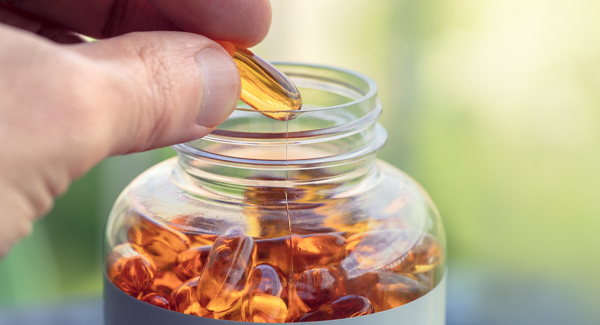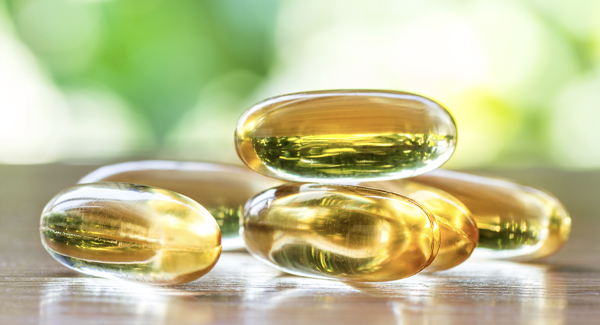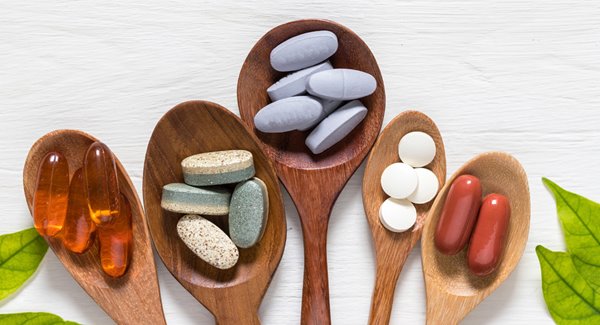Gout and Supplements: What You Need to Know
Here's what you should know about supplements to ease gout symptoms.
1. Gout and Supplements: What You Need to Know
Although there is no magic pill for gout, certain supplements have been shown to fight inflammation, decrease uric acid levels and boost the immune system. Adding supplements to your overall care plan may help ease the symptoms of your gout.
2. Discuss with the Doctor
Remember, talk with your doctor before changing anything about your treatment regimen, including over the counter supplements and dietary alterations. Supplements, herbs and even certain foods can have different effects on people. It’s important to seek the advice of a health provider who knows your medical history inside and out.
3. Get Going with Good Fats
You’ve likely heard about the positive properties of omega-3 fatty acids, such as eicosapentaenoic acid (EPA) and docosahexaenoic acid (DHA). They are known to regulate inflammation and lower cholesterol, among other things. You can increase your intake by taking one to two fish oil capsules or one teaspoon of fish oil daily. You also can add fish such as salmon, mackerel or tuna to your diet to increase your weekly intake of omega-3s.
4. Reduce Pain with GLA
While fish oil can help with omega-3 fatty acids, you still need your omega-6 fatty acids. Fortunately, you can find gamma-linolenic acid (GLA), which decreases inflammation, in black currant seed oil, evening primrose oil and borage oil. A simple way to increase your GLA intake is to take a 3,000 mg evening primrose supplement, which you can find in health food stores.
5. Make a Move for MSM
One of the most frustrating symptoms of gout is inflammation, particularly in the big toe. According to the American Academy of Pain Management, methylsulfonylmethane (MSM), an organic sulfur compound that helps form connective tissue, at a dosage of 3,000 mg twice a day, can help decrease inflammation.
6. Get a Folic Acid Fix
Folic acid, which is folate in its synthetic form, is well-known for its benefits before and during pregnancy, but boosting it in your diet also may help if you have gout. Folic acid is thought to break down high levels of homocysteine, which are often high in people who have high uric acid levels, one of the hallmarks of gout.
7. Rev up the Vitamin C
Vitamin C has a host of benefits, but did you know that it C has been shown to both prevent gout in people who do not already have it and reduce flares in people who do? Some studies show that vitamin C can help lower uric acid levels in people who have gout, while a 2009 study showed that the more vitamin C men took, the less likely they were to get gout. Vitamin C is readily available in supplements as well as in common foods.
8. Consider Eastern Medicine
Various studies show that Chinese herbs and traditional Chinese medicine can help relieve gout symptoms with fewer side effects than traditional medicine. For example, Ermiao wan is a Chinese herb used by herbalists to reduce inflammation. Herbalists also use dandelion as a tea or ointment to reduce swelling and prompt the elimination of uric acid from the body. Chinese herbs should only be used with the guidance of a well-versed natural medicine provider.
9. Embrace Herbs
Various herbs, such as turmeric, Devil’s claw and bromelain have been shown to have anti-inflammatory and immune-boosting effects. You can steep herbs in hot water to prepare flavorful teas or take them as a powder or capsule. A health food store is likely to have herbs and capsules, as well as a knowledgeable team to get you started.
10. Get Charged on Cherries
Anthocyanins found in cherries have anti-inflammatory properties that can decrease the amount of uric acid in the blood while also lowering inflammation. A 2012 study found that eating at least 10 cherries daily can cut your risk of recurrent gout attacks in half. Another study saw a 50 percent reduction in flares when patients took one tablespoon of tart cherry extract – the equivalent of 45 to 60 cherries – twice a day for four months.
11. Learn More
While there are effective medications for treating gout, supplements – along with a healthy diet and exercise, can be part of an effective holistic treatment plan. Challenge yourself to learn all you can about the various ways supplements can help ease your gout symptoms. Learn more about gout and how to manage it.
Sorting through supplement advice for gout can feel confusing. Some supplements may help. Others may offer little benefit or even cause harm. This article helps you make safer choices. Your support helps keep this trusted guidance available to everyone.

Stay in the Know. Live in the Yes.
Get involved with the arthritis community. Tell us a little about yourself and, based on your interests, you’ll receive emails packed with the latest information and resources to live your best life and connect with others.



